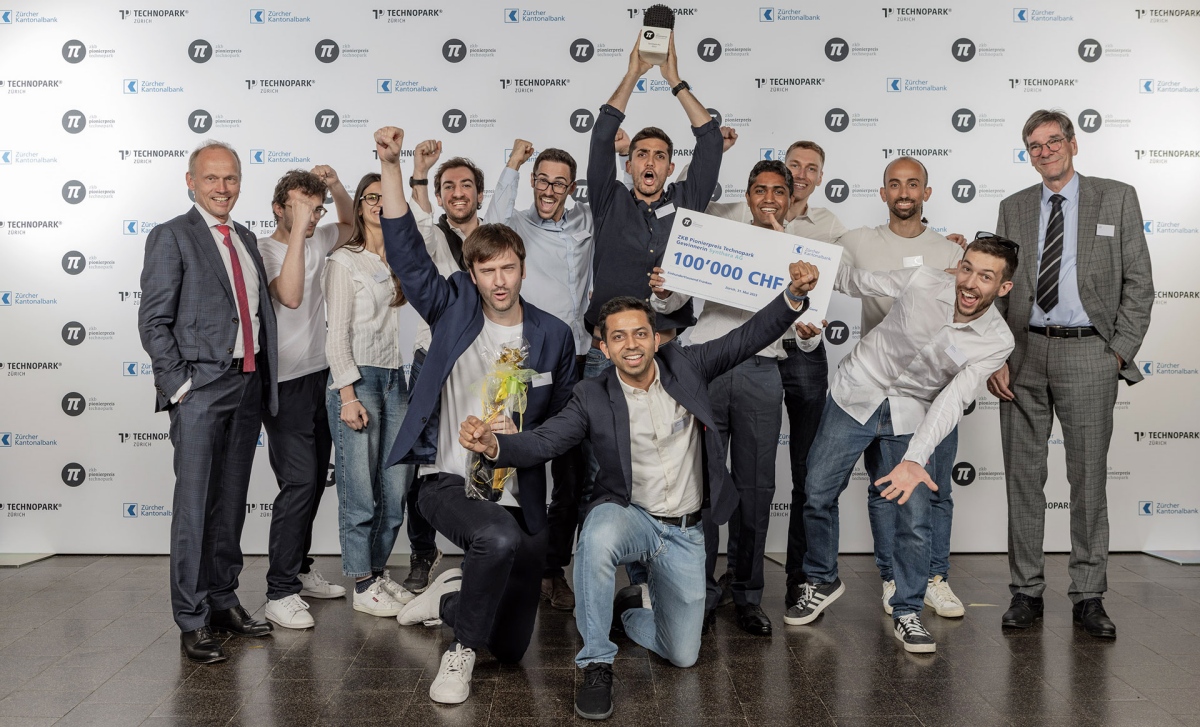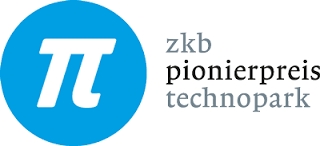
The panel of judges has nominated 11 startups from 45 submitted applications, for the ZKB Pioneerpreis Technopark 2024. The startups will proceed to the next stage as they contest to win a cheque for CHF 100,000.
The Pionierpreis is an initiative by Zürcher Kantonalbank and Technopark Zürich and has been running for more than two decades, promoting outstanding technology startups. The selection of the first startups for the 2024 competition brings the program closer to the award ceremony. Almost half of the nominees concentrate on technology solutions in the Medtech sector; two-thirds are spin-offs from ETH and EPFL. In March, the jury will reveal the three finalists presenting at that finale on 7 May. The best team will receive a cash prize of CHF 100,000. The two runners-up will receive CHF 10,000 each.
Startups on the Pioneerpreis shortlist are:
4QT (Zurich) – Excavators, dumpers, and other heavy construction machinery are significant polluters and challenging to electrify owing to their high energy requirements and difficult access to charging stations. 4QT’s patented double-rotor drive offers a solution to this problem and contributes significantly to climate-neutral construction.
Avelo (Schlieren) – developed an innovative breath aerosol collector that uses existing PCR tests to provide a simple and rapid diagnosis of lower respiratory tract pathogens, leading, for example, to better and more targeted treatment of tuberculosis – the fourth most common cause of death worldwide.
Decentriq (Zurich) – offers a SaaS platform with data protection technologies and advanced AI solutions to enable companies to collaborate on confidential data and create insightful statistics or AI models without sharing raw data.
Deepjudge (Zurich) – is an AI-powered knowledge-based search engine with a chat assistant that helps law firms and legal experts use natural language quickly and effortlessly to extract insights from large corporate document-and knowledge-management systems.
Eightinks (Schlieren) – developed a manufacturing process for next-generation lithium-ion batteries based on a multi-layer curtain coating for electrodes to address. This will allow resolving issues relating to scalability, costs, energy density, charging times, safety, and recyclability.
Flybotix (Lausanne) – Confined spaces and limited flight times often hinder aerial inspections by drones. Flybotix’s technology overcomes these challenges by equipping a cage drone with a patented propulsion system that doubles the flight duration currently possible.
Haya Therapeutics (Lausanne) – develops treatments to reprogram disease-driving cell states associated with fibrosis, the cause of 45% of lethalities in the world. The startup’s proprietary platform provides novel insights into the biology and ‘druggability’ of long non-coding RNAs, the ‘dark genomes’ features that dictate these disease-driving cellstates.
Limula (Lausanne) – Cell and gene therapies (CGT) offer hope for patients with previously incurable cancers. However, these treatments are inaccessible to most eligible patients because their production is based on a complex manual process. Limula is developing a sophisticated bioreactor that enables automation in manufacturing and promises to make CGT scalable and accessible to a greater extent.
NexMR (Schlieren) – Magnetic resonance (MR) is used not only for imaging and diagnosing patients but is also the most precise instrument for analyzing chemical substances in drug development. NexMRs’ technology combines in vitro sample illumination with photochemistry to create a process that promises to be 20-50 times cheaper and 100 times faster than today’s standard.
Stimit (Zurich) – Intensive care patients lose up to 50 percent of their diaphragmatic function within the first three days of artificial ventilation. Stimit’sinnovation aims to maintain this function non-invasively by stimulating the phrenicnerves to activate the diaphragm. This encourages faster, unaided breathing and avoids potentially unnecessary intensive care costs.
Unisers (Zurich) – Every year, billions of computer chips are wasted during production because dirt particles are not detected early enough. Unisers’ intelligent contamination analysis uses the combination of an ultra-thin coating and Raman spectroscopy to detect impurities. This technology can increase the yield of chip production in semiconductor manufacturing, while waste reduction also positively impacts the environment.
(Press release)
Photo: ZKB Pionierpreis
























































Please login or sign up to comment.
Commenting guidelines